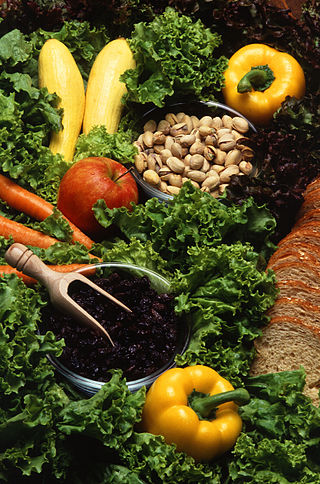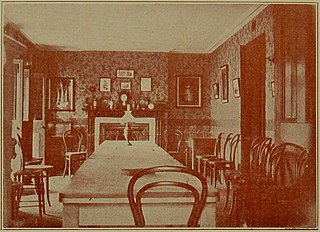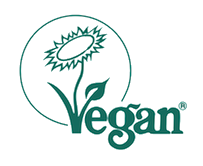- Vegan graffiti showing an Enclosed V in Lisbon, Portugal
- Vegan Flag International, designed by Gad Hakimi
Vegetarian symbols
Indian vegetarian mark

Packaged food and toothpaste [4] products sold in India are required to be labelled with a mandatory mark in order to be distinguished between lacto-vegetarian and non-vegetarian. [3] [5] [6] [7] [8] The symbol is in effect following the Food Safety and Standards (Packaging and Labelling) Act of 2006, and received a mandatory status after the framing of the respective regulations (Food Safety and Standards (Packaging and Labelling) Regulation) in 2011. [3] According to the law, vegetarian food should be identified by a green symbol and non-vegetarian food with a brown symbol. They are defined as:
"Vegetarian food must have a symbol of a green color-filled circle inside a square with a green outline prominently displayed on the package, contrasting against the background on the principal display panel, in close proximity to name or brand name of the food."
"Non-vegetarian food (any food which contains whole or part of any animal including birds, marine animals, eggs, or products of any animal origin as an ingredient, excluding honey, milk or milk products), must have a symbol of a brown color-filled circle inside a square with a brown outline prominently displayed on the package, contrasting against the background on the principal display panel, in close proximity to the name or brand name of the food." [9]
In 2021, FSSAI (Food Safety and Standards Authority of India) adopted a new symbol for non-vegetarian food items due to concerns that the combination of the old symbols were difficult for people with colour blindness to distinguish. The new symbol is that of a brown color-filled triangle inside a square with a brown outline. [10] [11]
In September 2021, the FSSAI announced adoption of the new vegan symbol. [12] [13]
V-Label

The V-Label, a V with a leaf, originated with the European Vegetarian Union. The V-Label is a standardised international vegan and vegetarian label supported by the EVU with the aim of easy identification of vegan and vegetarian products and services. [14]
Vegetarian Society approved trademark

The Vegetarian Society Approved trademark is the world’s first vegetarian accreditation symbol and appears on thousands of products worldwide. It was created in 1969 by the Vegetarian Society who were established in 1847 and invented the word “vegetarian.”
Any product displaying the Vegetarian Society Approved vegetarian trademark has been independently checked by the Vegetarian Society and meets these criteria:
- Contains no ingredient made from animal body parts
- Only free-range eggs are used
- Measures in place to avoid cross-contamination during production
- GMO-free
- No animal testing carried out or commissioned. [15]




















